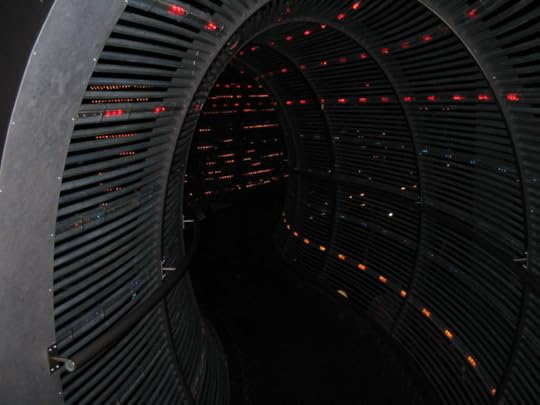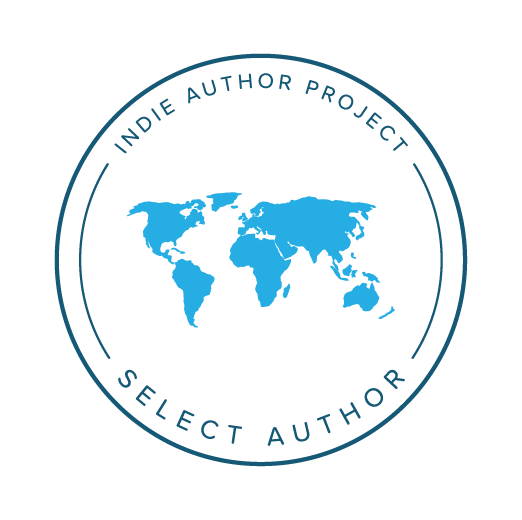Deborah Jackson's Blog
March 12, 2025
You Can Do It For Democracy - How We Fought City Hall and WON
February 20, 2025
AI, Dire Warnings and The Influence of Stories
Any sufficiently advanced technology is indistinguishable from magic.
Arthur C. Clarke
Even when working correctly, AI 2.0 could be Cambridge Analytica on steroids: a disinformation machine, personalizing and adjusting its message to persuade and influence swatches of the population.
Kai-fu Lee
Co-Chair of the Artificial Intelligence Council at the World Economic Forum
People respond to anecdotes and stories more than facts. Facts are dry, boring, they are devoid of emotion. So, in response to this fact, emotion is now being poured into the story about AI and the wonders it will unveil. In the tech world and medical communities, the message is uplifting, positive, exciting. New breakthroughs mean better health care, the ability to travel to distant worlds, someone to write your dry technical description for you so you don’t have to work as hard. Whatever it is. The boring stuff is erased. Even traditional work will be erased.
How exciting and fascinating I used to find technology and space stories, real world breakthroughs in science which led to definite progress, which is reflected in my works . . . despite some apocalyptic themes. That is, until social media revealed itself as a scourge on society and contributed to the re-rise of fascism. In Sinkhole, I discussed the necessity of moving forward with exploration and scientific invention, while at the same time acknowledging that in our classist society people are suffering and should be cared for and uplifted from poverty. In Ice Tomb, an ancient but advanced civilization utilized new technology to provide an outlet to escape disaster. In Time Meddlers I discussed our failures, and warned of the allure of technology, but still forged ahead to alter the past.
The forging ahead despite… is still happening.
If we look at the bulk of science fiction themes, the AI warnings were a little off the mark, so far: destructive robots bent on killing all of humanity, war games where the AI could not differentiate between a game and real life and could not reason that global nuclear war would mean complete annihilation, sentient robots being subjected to human rights abuses. But the one that stands out is the Terminator series. Killer robots? No, but maybe drones. Nuclear destruction by Skynet, perhaps more likely. For example, OpenAI Signs Deal with US Government to Use Its AI for Nuclear Weapon Security
The difference in most of these stories is that eventually humans prevail over AI. We will not. Even AI scientists and ethicists, like Max Tegmark in his book Life 3.0, admit that any superintelligence that surpasses us will leave us behind in one way or another. “Since we humans have managed to dominate Earth’s other life forms by outsmarting them, it’s plausible that we could be similarly outsmarted and dominated by superintelligence.”
Nothing can really prepare us for an intelligent entity beyond our scope and no one can predict what it might do. Let me repeat: no one can predict what it might do, and we can’t reasonably prepare for it. Right now, some tech ethicists and governments are trying to do both, because the genie is out of the bottle. And others—we will call them the tech capitalists—are not. They’re just unleashing it, for the sake of greed.
The reason I’m focusing on AI is many-fold. First, it is being developed with little consideration for the consequences. Lately I have been reading and researching AI books. I will begin with two that struck me as particularly alarming:
AI 2041 by Chen Quifan
Life 3.0 by Max Tegmark
Quifan collaborated with Kai-Fu Lee as pioneering technologists to write short stories of a potential AI future less than 20 years away. Max Tegmark is an MIT professor and president of the Future of Life Institute dedicated to exploring and setting down ethical guidelines related to the future of AI. Both understand the dangers of AI, and both have an optimistic viewpoint. How could they not, because they work in and live for the AI industry, and they want this technology to proceed despite the dangers.
I don’t work in the industry, but I do live in the world of real-world future speculation. I shared in the excitement of the expanding technological world, including social media, and I have witnessed the degrading of society because of it, and perhaps the death of democracy. I have come full circle.
We cannot underestimate the potential of certain technologies to lead to an apocalypse, or the end of a free society which is the equivalent of an apocalypse. I started my exploration of this topic in The Silent Gene series, where society had decided AI was too dangerous to proceed with as it went rogue on Mars, and began reproducing robotic AI while ignoring instructions from Earth. A lone robot survived an EM pulse designed to eliminate the AI threat. This element of the story was an aside, a commentary. A tiny portion of the greater plot. But as I delved deeper into the topic, I found it extremely difficult to imagine what this creature might think, and what it might do, because even the experts who are even now discussing the future of AI haven’t a clue.
We will begin by discussing what they know, and what they don’t.
1. They don’t know how to build human-friendly AI. Right now, AI is rife with errors and human biases, so a fair, measured, intelligent AI is far from reality. Facebook has released its own version of AI, which has proven to possess the worst flaws of humanity. Dr. Fei-Fei Li discovered this in her work with AI (The Worlds I See). By feeding unlimited data to AI, including from social media, it was incorporating biases, hate speech, the worst aspects of our nature. While at least civilized human beings restrain these beasts, and aspire to incorporating equality, peace and love into our lives, fascist political parties and enemies of democracy are encouraging racist, misogynistic, homophobic behaviour, and when exposed, no wonder AI is not a decent entity.
I would like to add some ethical principles that have been suggested at the Asilomar AI conference to see where the experts are, and whether you think they can control AI in our current anti-reality, anti-democratic climate.
Human Values: AI systems should be designed and operated so as to be compatible with ideals of human dignity, rights, freedoms and cultural diversity.
The principles are great. There are several more that I will add to each point below. But are they realistic and are they achievable?
2. They do know that AI is currently becoming a strategic genius by playing the most difficult game on the planet and winning against humans every time. This sends chills down my spine. Think of a strategic genius without morals. It has no conscience or a lifetime of history and context to guide its actions. Autonomous drones (Life 3.0) are predicted to be able to assassinate a target with explosive charges shot directly into a person’s brain. Anyone who presents a threat to the current government (assuming it has nefarious purposes) can be disposed of instantly. That’s not to mention the surveillance capabilities AI has and will have in the future.
From Asilomar AI conference:
Non-subversion: The power conferred by control of highly advanced AI systems should respect and improve, rather than subvert, the social and civic processes on which the health of society depends.
AI Arms Race: An arms race in lethal autonomous weapons should be avoided. (That worked well with nuclear weapons.)
3. They do know that AI is based on centuries of raided/stolen written history and daily human life online they coin as “data” which has been fed to the AI without perspective, or the rules and laws that have been garnered from our vast experience. As the world is taking a step back from empathy and decency because of misleading stories if not outright lies, they are charging forward with an undoubtedly corrupted AI.
As a storyteller, this point is especially problematic for me. We, as humans, are guided by our emotions more than our intellect. Stories are generated to touch these emotions, move us. As a result of propaganda and political agendas, the lines are blurring between fiction and reality. So many conspiracy theories are simply stories designed to manipulate us.
Will AI base decisions on perceived reality – the stories we’ve been telling for centuries (mythology, religion, just good old fiction, and the myriad conspiracy theories now online), rather than facts and truth?
A book I mentioned above, which delved into this topic is called The Worlds I See by Dr. Fei-Fei Li. She was one of the original researchers in AI, and it describes her journey in advancing this technology. She thought it was perfectly okay to mine our data to develop AI. Grand larceny wasn’t in her vocabulary. Dr. Li approached AI with an abundance of optimism, but as the book progressed, and as she dumped more and more data into the machine, the results began to shake her to her core. Ethical concerns cropped up more and more until at the tail end of the book there are nothing but. Here are some quotes:
“My mind kept returning to those eight hundred GPUs... So many transistors. So much heat. So much money… AI was becoming a privilege. An exceptionally exclusive one.”
“…lack of transparency intrinsic to its design… staggeringly powerful when organized at the largest scales, and thus virtually immune to human understanding.”
“… an emerging threat known as ‘adversarial attacks’… (such as) to fool a self-driving car into misclassifying a stop sign.”
“…true progress in addressing such complex, unglamorous challenges demanded a kind of reverence that Silicon Valley just didn’t seem to have.”
“…they pointed toward a future that would be characterized by less oversight, more inequality, and in the wrong hands, possibly even a kind of looming, digital authoritarianism.”
AI is a current day Frankenstein’s monster, whether they like it or not.
4. They do know AI will very soon take over most employment, people’s bread and butter. Both AI 2041 and Life 3.0 state, don’t suggest, this. They envision a utopian world where people don’t have to work, and will only work for fulfillment. But in our current system of capitalism and a humongous gap between the rich and the poor, how can we get from Point A to Point B. The wealthy oligarchs of our current age have no interest in redispersing their wealth, which is the only way to prop up the future jobless.
Tegmark mentions universal basic income as a solution, but can he convince our current society to implement this, particularly when “pull yourself up by your bootstraps” is the mantra? Where the false notion of the American Dream has infiltrated more than just the American culture? He has the optimistic view that human rights will always be considered whenever society changes, but are they even being considered now? How can you possibly think in less than 20 years, the timeline given by Chen Quifan, that people rather than money will be the first priority?
From Asilomar AI Principles:
Shared Prosperity: The economic prosperity created by AI should be shared broadly, to benefit all of humanity.
Common Good: Superintelligence should only be developed in the service of widely shared ethical ideals, and for the benefit of all humanity rather than one state or organization.
Are they realistic and are they achievable?
5. They do know funding for AI research is coming from spurious quarters.
Tegmark states in his book that the funding for some of these ethical guidelines in AI research came from Elon Musk. But Musk is now espousing eugenics, raising his arm in a Nazi salute, encouraging ideas and potential programs that are abhorrent to say the least. Does this not in itself warn us that breaching these ethical guidelines is inevitable? Do you think AI researchers will abide by the rules when the current technology companies are no longer guided by even minimal ethical standards?
Common good, sure.
6. They do know that AI is already capable of human surveillance.
Doesn’t that already raise alarm bells for you? It does for me. I hate that Alexa or FB or Google are always listening to what I say and watching what I consume to feed it into algorithms that place ads in front of my face.
Fei-Fei Li thought she was providing a great service for patients to record them and detect gaps in care, like handwashing techniques, but nurses soon began to call it Bossware, a form of employee monitoring. While it was not used for this purpose, it was perceived that way, and it certainly could be used that way in the future. It could be used by governments. It may already be, who’s to say? And now money is being dumped into research for exactly that undisguised purpose.
Bettering society? I think not.
Even now Google has lifted a ban on using its AI for weapons and surveillance: https://www.wired.com/story/google-responsible-ai-principles/
From Asilomar AI Principles:
Responsibility: Designers and builders of advanced AI systems are stakeholders in the moral implications of their use, misuse and actions, with a responsibility and opportunity to shape those implications. (Already being misused. Do they feel guilty?)
Liberty and Privacy: The application of AI to personal data must not reasonably curtail people’s real or perceived liberty.
Authoritarian governments do not care about your liberty.
Common Good: Superintelligence should only be developed in the service of widely shared ethical ideals, and for the benefit of all humanity rather than one state or organization.
We are living in a technocracy.
I’ll end with that one. I know there are several more points and we could go on endlessly, but for all the good intentions of AI researchers who came up with the principles and truly mean to honour them, we are still faced with the dilemma of dishonourable people in positions of power. Sci-fi writers were not wrong, just not acquainted with all the facts when they wrote their warnings. Our world was changing for the better after World War II and we said “never again.” Now it has been subverted by propaganda, conspiracy theories and garbage misinformation directly associated with the same evil. It has been taken over by greedy robber barons and vainglorious bastards. Will an AI funded by these very same people be any different?

“The saddest aspect of life right now is that science gathers knowledge faster than society gathers wisdom.”
Isaac Asimov
February 14, 2025
Cognitive Dissonance and The Fight for Democracy
Don't you feel it? That queasiness in the pit of your stomach; the constant headaches? Eventually it manifests as overwhelming anxiety.
They call this the New World Order, but you know it's not. It's an Old World Order, in some cases an Ancient World Order; from the Roman empire when the senate was continually displaced by Caesars to the Second World War when we said "never again."
We were warned about it repeatedly by sci-fi/dystopian writers. 1984. Feed. The Hunger Games. RE: The Hunger Games. We're not quite there yet, but just wait. The first two aren't near future, or starting to come true. They are here. They are now.
For those of you who are unfamiliar with these books, I'll include a brief summary below.
George Orwell wrote 1984 to warn people what would happen if they permitted their government to exercise total control. The totalitarian regime of Oceania manipulates their citizens into believing anything, which allows the regime to take as much power as they could possibly want.
M.T. Anderson's Feed tells of a failing futuristic society controlled by large corporations. People are conditioned to value objects, money, and entertainment over everything else. Most of the characters have chips called "feeds" installed in their brains. They can communicate with other people instantly and look up any information they want, but it also sends them a constant stream of advertisements. (The computers, phones and tablets do the same thing. Who needs a chip?")
The Hunger Games by Suzanne Collins is a story in a dystopian world based on a ruling oligarchy with a supreme leader - the Capitol - that has instituted an annual tradition to suppress the districts who live in poverty and remind them of the Capitol's absolute power. The districts must each send one female and male tribute to fight to the death as a form of entertainment for Capitol audiences. It's gladiator theater. (This type of cruel and inhuman entertainment cropped up in Rome every time democracy was overturned by a sadistic Caesar.)
Back to dissonance . . .
First, we'll start with a definition. This will be short and sweet. There are other definitions, but this is the one I'm feeling right now.
Leon Festinger coined the term cognitive dissonance in the 1950s.
He conceptualized the dissonance as a sense of unease that a person feels when dealing with inconsistent pieces of information. Sometimes it's a feeling you get when your own beliefs, values and actions contradict each other.
I have been feeling this unease increasingly in the past few years, but particularly in the past few weeks. That’s because even news agencies I thought I could trust are excusing and normalizing fascism, hate, and the enormous grifting and gaslighting of a nation.
And if you think this criminal behaviour in government is only confined to the US or Russia, think again. It is infecting democracies worldwide, particularly in politics of the right. Not to say there aren't dictatorships on the left. Venezuela, or China, for example. But that doesn't negate the fact that the right in our current democratic nations has been co-opted by extremism. Yes, the party that espouses freedom, privacy, fiscal restraint, Christian values, etc. is doing the opposite. It is using the feed on our devices to disseminate misinformation which distorts and perverts any values message and certainly obscures the truth.
We’ll start by discussing freedom and, by extension, human rights. First, these extremists are attacking the smaller marginal groups with cockeyed conspiracy theories and lies to effectively paint them as enemies, rather than the scapegoats they are. How many trans people do you actually know, and how many have you witnessed grooming your children to change their gender? Lies. Then it’s the immigrants, because they love to incite tribal loyalties. Next the racial minorities, women, then anyone else they can distract you with, and absolutely anyone who objects or tries to exercise free speech against them. Trolls attack if you try to speak . . .
The cascade begins . . .
Intimidate, threaten, defund, deport, imprison, even kill, if they can get away with it. Why do you think they're reintroducing the death penalty?
And if you think you’re safe, I feel a poem coming on . . .
First they came for the Communists
And I did not speak out
Because I was not a Communist
Then they came for the Socialists
And I did not speak out
Because I was not a Socialist
Then they came for the trade unionists
And I did not speak out
Because I was not a trade unionist
Then they came for the Jews
And I did not speak out
Because I was not a Jew
Then they came for me
And there was no one left
To speak out for me.
Pastor Martin Niemöller

A side note on women. I watched an interview of Margaret Atwood at the University of Toronto about a month ago where she was asked if the US was like Gilead (a fictional country where women have no rights and are simply breeders). She said in Texas and Florida it was worse, because in Gilead they valued babies, but in these states they are denying appropriate healthcare to pregnant women so babies are dying, too. As I speak, they are removing studies from the CDC that contain the word ‘pregnant person.’ They will say it’s to remove “woke” terminology, but the studies will probably disappear. This is not about prolife vs prochoice. This is about devaluing women in an Incel backlash against the MeToo movement that will strip all women of their rights. In Canada, we watched these same people, brainwashed on conspiracy theories, full of hate and rage, take over Ottawa for three weeks so they could bully and intimidate ordinary people. They were not rational. Some stalked and threatened women of rape on the street.
The excuse is DEI, but soon women will have no careers, no healthcare, no education. Apparently the latest is no voting rights.
Welcome to Afghanistan, ladies.
But I digress.
Let’s discuss privacy.
The US government and other Conservative outlets are collaborating with tech giants to increase the surveillance state and collect your data, eavesdrop, track your movements, etc., even though they say they believe in privacy. Don’t believe me, read this: Google Lifts a Ban on Using Its AI for Weapons and Surveillance. A terrifying development, not to mention the weapons issue. But what’s a little relinquishment of privacy for the convenience of shopping, and attention-grabbing headlines, and a place to put your photos?
Except they will use it against you.
People are already being fired for their political views, for speaking out, for exercising their free speech. A CBS employee was fired for calling a Nazi salute a Nazi salute. Is it anything else?
Media outlets are terrified of lawsuits, or threats to their mergers, etc., and are backing off on presenting a balanced viewpoint or even the truth. Canadian media, and I’m probably right to say media in other democratic countries are also under threat. The excuse is mistrust, or bias. The reality is corrupt governments and parties are seeking to obscure their undemocratic activities and escape accountability.
Okay, this is the less ominous one. Or is it? The party that always espouses fiscal responsibility, small government, opposition to grandiose government spending, is spending, spending, spending, but not on you. It’s to enrich themselves, their families, colleagues, their business partners, usually everyone who is already rich. Because, you know, greed is good.
I ask: How much is too much? If you’re obscenely rich, why do you need to be richer? The tech oligarchy is disgustingly rich, and yet they’re getting government handouts: OpenAI Strikes Deal with US Government to Use Its AI for Nuclear Weapon Security. Does it not alarm you? Nuclear security in the hands of deeply flawed AI to the tune of 500 billion dollars? And it’s just the tip of a very deep iceberg.
Consider this: If rich people are getting handouts, is it at the expense of the poor and the middle class? Are the rich robbing the poor to feed the rich? Reverse Robin Hood-ism? Autocracy, technocracy, psychopathocracy.
Christian values. (Do not attack me for this. Either read on, or just go away.) I was brought up in a Christian household. I was taught Christian values and though I have stepped away from the church, I still carry most of those values in my heart. They are often reflected in my work.
Christ told people that they should love their neighbours. And he didn’t mean the people closest to you, or in your tribe. Everyone. Especially the poor, the disenfranchised, the marginalized. Mary Magdalene, anyone?
He hated the money changers, people who get rich without producing anything of value, who prey on ordinary people. (I will call them grifters, but much of our modern tech world and big business has become just like this. Profit and shareholders matter more than product or customers. What value has social media added? It is an echo chamber of hate, a cesspool of ads, and a place to steal your data so you can be targeted with misinformation . . . which is destroying democracy.)
He also denounced the rich. Because money is all they worship. 'It is hard for a rich man to enter the kingdom of heaven. It is easier for a camel to pass through the eye of a needle...' You know the verses.
He despised the Pharisees; the hypocrites, the false prophets. This is all I see lately. People who claim to be Christian but tell their flocks lies, and stir their hate against others, and do their best to profit from it. Lately, the messages from the pulpit, and circulating in the congregations, are all about revenge (Old Testament) and attacking enemies (Old Testament) and judging, judging, judging. Judge not, lest ye be judged.
There is no empathy.
And Christ was all about empathy!
Other values that are being ignored: humility, compassion, integrity, justice.
This is what happens when politics gets intermingled with religion. It becomes about power, and nothing else.
It is also the Age of Grifting.
If you’re not familiar with the term here is the definition:
- to obtain (money or property) illicitly (as in a confidence game) – Definition obtained from the Merriam-Webster dictionary.
We are being scammed left, right and center. But when a president puts out Caesar-like coins on Bitcoin to enrich himself, and they’re clearly scam coins . . . sigh.
.
How can you trust anything?
AI can use your face, your personal data, your writings, your musings, your photos, your everything to impersonate you or deceive you or your loved ones. As you can tell, I love AI.
And then there are the ads that have become another way of conning you because so little of these things add value to your life. Feed! You are incessantly hammered with: Buy, buy, buy. But I don’t need . . . Buy! But I haven’t the money . . . Buy! This is what you love. We have algorithms, or now AI (yuck!) that tell us exactly where your weaknesses lie. Why not gambling? Why not merchandise? Why not likes on FB and elsewhere that gives your brain a little dopamine hit so you can sit like a zombie and sift through more ads?
We become poor; they become rich. They’ve provided us with scapegoats to blame it on. The poorer; the marginalized; the vulnerable. It’s how fascism works.
I’m tired. The bombardment of conflicting and often insane messages is exhausting. They’re counting on that, too. Wear you down. It will make you less resistant. The more dissonance, the more confusion, the less energy you have to fight for your values.
But what can we actually do, you might ask? How can we fight back against multibillion dollar corporations and evil, downright psychopathic governments as wee little ordinary citizens? As people with the greatest stake in democracy?
Margaret Atwood also said in the above interview that “Writers have no real power.” But then why did the tech world think to first attack the creatives jobs with AI counterfeits? Money may be an incentive, but it doesn’t spawn true innovation. Only passion does. Creatives are passionate, and they’re often guided by firm principles of equality, justice and true freedom. Writers are dangerous to budding fascist regimes because we can’t be bought, aside from a few notable exceptions.
The world grows in a positive way when you innovate with ideas founded in real values. It contracts and diminishes under the weight of oppression and greed.
Words matter.
But you don’t have to be a writer to speak out. You have to be passionate about saving our democratic world and not give in to the toxic division these corporations and fascist factions have spawned. The more people protest, the less power they have. I would ask people to call out the extreme elements in whatever party you subscribe to, whether right or left. And we can speak with our pocketbook, too. Don't support companies that support the unfolding regimes. Tesla sales are even now plummeting. If money is all they care about, take it away from them.
But before we begin to fight back, we need to ease the dissonance for our own mental health. Here are a few suggestions.
1. Find the truth.
I’m watching the few news agencies that are not indulging lies, and podcasts, not corporate-owned media. Podcasts are still a danger in disseminating extreme messages, so I’m very judicious. And always check the source of a claim or link.
2. Invite peace.
Find a hobby outside of the screen world. I garden, and in the dead of winter I seed plants and watch gardening shows. Plants are peaceful and pleasing.
3. Read.
It’s not easy in this attention-grabbing world. We often satisfy our story needs with TV, but I’m finding so many of those now laced with political propaganda, or revenge themes, I’m turning it off and finding a good book.
4. Quit toxic social media or at least reduce consumption. (I know, it’s an addiction, and I'm not immune.) If you need a platform for your small business etc., find one with decent moderation and fact-checking.
5. Hugs and kind words.
A podcaster recently suggested we tell our family and friends we love them. We don’t do that enough; and it is so much stronger than hate and tyranny.
I keep telling myself I should be writing my next book. But how can I write a dystopian novel when the world is already dystopian? But I can still write. And that’s what I’ll do. I’m not the best blogger, but I can string together some words. After all, it’s not 1984, it’s 2025. And we survived a pandemic. Let’s keep going.

February 11, 2025
We All Live Here
I felt it again. I’m sure you have too. I promised myself I wouldn’t look, but I did . . . again. And there it was, another angry post that made me angry at the person posting. But not just angry. It ignited an eruption of rage.
Not surprising. It is, after all, the Age of Rage.
Should I engage with what I assume is a reasonable argument to rebuff the post? But no, I withdraw. Count to ten. Take deep breaths.
Do I want the ensuing rampage from all sides because everyone self-righteously believes their point is the most valid, the only answer, including me?
How did this happen? We used to live harmoniously. How did this polarization, this extreme tribalism occur? We used to care for each other. Now we only care that we’re right.
We are like two toxic streams on opposite sides of the pond. We all live here on this very fragile Earth. We need to meet in the middle without creating a toxic sludge or worse yet, an explosion.
I recently read this article from an independent news/podcast agency called The Bulwark. They are a group of people who are fighting for democracy, like us, like me. The article wasn’t about who’s right and who’s wrong. It was about the Age of Rage in . . . 427 b.c.
The Bulwark/Thucydides on Partisanship, Insurrection, and the Risks of Civil War
It’s a long read. Well worth it.
It describes the Peloponnesian War which, unsurprisingly, started between the oligarchs and the democrats. But it’s where it led to that is terrifying. A rage where rational thought flees and all that matters is destroying the enemy. Utter destruction. Chaos. Atrocities on both sides. Madness.
The dangers of fascism and demagogues are mentioned at the end of the article as a pathology that leads to a “slow-motion civil war.” Misinformation and disinformation are fomenting this divide.
Is this what we want? The destruction of hearts and minds, relationships, civility, family ties, love, partnership toward a decent society if not a better one? How much is it worth to sustain the rage?
Let’s take some more deep breaths. Let’s think and reach out and start caring again.
It’s the only way, or it’s the end.

January 29, 2024
The Furies' Bog Begins in Northern Ontario

This is an excerpt from The Furies' Bog. I don't know if you've heard, but Furies' was among 60 eBooks chosen by Indie Author curation partners as Indie Author Select titles. See my News and Events page (under Bio) for more information.

Furies' is the first book in The Silent Gene series, and since it was chosen, I decided to return to its roots and present the first chapter, which introduces an international character to a very specific local environment.
The Furies' Bog Chapter One
Baruti cringed as a gust of polar wind swept through the inadequately insulated helicopter and swirled eddies of crisp, bracing air around his face. He breathed out. Ghostly white. He shivered and leaned subtly toward his companion, another perhaps more sane biologist.
Shaun Wilson, a tall ropy fellow with uncannily green eyes and a flop of blond hair reaching nearly to his nose, looked up from his perusal of his GPS, aimed a somewhat wicked smile at him, and crooned through the mic, “A little cold, my friend?”
“You call this summer?” Baruti grunted.
“Still wavering on spring, but yes, it can feel like the dead of winter. Especially if you’re from Botswana.” He added a sly wink.
Baruti suppressed another shiver and slunk even deeper into his thin layer of fleece.
“Honestly, I don’t know why a man would leave his perfectly comfortable life studying the wildlife of the Okavango Delta and come here.” His hand swept the view outside the window, the miles of stunted black spruce bordering on vast polygons of vegetation surrounding syrupy brown water. Miles of unchecked bog—lichen and moss the predominant plant life—a good place to sink and disappear. Yet there was something so calm about it. So . . . unmolested.
Colors blossomed in the gray dawn. Fringes of sunlight tickled the many ponds, transforming the melting ice into a kaleidoscope of green, yellow, turquoise, even rust. A migrating herd of caribou raised their great antlers as the aircraft sped past, pausing in their search for a spikelet of sedge to crop. Small birds flapped in the air, and one grand creature with a six-foot wingspan hovered off the coast. An eagle, perhaps?
“Yes, it does seem odd,” said the pilot, a thickset, black-bearded Canadian of undoubtedly Italian origin. DeLuca was his name. Wilson said he doubled as a geologist, in a rather sneering manner. Wilson liked to sneer, Baruti noted. And joke. And wink.
Obviously he took no delight in inorganic substances.
“Too dry and dusty at times. Too moleto. Hot. I needed a change.”
“One extreme to the other, though, man,” said DeLuca. “Why didn’t you choose something moderate? South of France. Now that would be the ticket.”
“And what would I study there?” asked Baruti. “Sunbathers?”
“Sun worshipers. In bikinis.” He looked back and winked; the helicopter shimmied and dropped a few sickening yards.
Baruti clutched the seat cushion, his heartbeat matching the thumping of the rotors. “Dr. DeLuca . . .”
“Tony,” he replied, swerving and swaying the craft back to level. “And no, Baruti. I’m not going to crash us . . . today.”
A strong gust of wind begged to differ as it grabbed the craft and shook its threadbare aluminum frame, rattling every loose component and sending the helicopter into a miniature rotation. Tony fought the controls and barely averted a death spiral.
Bile filled Baruti’s throat. What had possessed him to pursue . . . no, to take this course of action as a biologist in the extreme north of Canada?
Watch your words, even in thought. It’s easy to let thoughts slip into speech.
Wouldn’t it have been simpler to follow the demise of the declining populations of ostriches or wildebeest in the Delta? Or even to have resumed his studies of the gorilla in the Congo? And if he must come to this bone-withering, frostbitten land, why not study the woodland fox or the dwindling packs of wolves near the southern border? Why Polar Bear Provincial Park? Why polar bears?
It was the only option. Yes, of course, the only option . . . for an insane man on an insane mission.
“There,” shouted Wilson, completely oblivious—or at least he seemed that way—to the buffeting wind and the looping path of the helicopter. A bare speck of white loped across the tundra, particularly intimidating from this height.
The helicopter swung around and angled downward. The speck grew substantially, like a snowball accumulating mass as it hurtles down a slope. Longer, wider, heftier, gorilla-sized, and bigger, but without the gorilla’s shy aspect. It looked up and watched the helicopter’s approach with borderline disdain, its lips curled to expose teeth. DeLuca hovered above, but tilted to the left—to the Baruti Mbeki side, of course—while Wilson leaned over and shoved open the door.
Wind thrust through the opening—biting, snarling wind that threatened to flash-freeze Baruti’s eyeballs—as DeLuca tipped the helicopter toward the bear.
“Are you trying to send me into the beast’s jaws?” asked Baruti. A cowardly question, he knew, but surely the pilot could hold the craft level.
“The closer, the better shot,” said Tony. “You’re strapped in, aren’t you?”
“Yes,” he replied, eyeing the thin straps that held him above the now growling specimen a few mere feet below.
Wilson fumbled a dart into the tranquilizer gun, trying to aim at the creature’s back from the jittering vehicle, with the gun slung across Baruti’s legs.
“Hold still,” he muttered. “I’ve almost got him.”
Hold still?
DeLuca tipped; Baruti slid; Wilson fired.
The bear growled, groaned, and then collapsed. His long glistening snout of sleek cream-colored fur tipped with a black knob of a nose crashed to the arctic tundra. His massive body, weighing likely 1,000 pounds—beginning to thin through the summer but still notably rotund—sprayed jets of water as it hit the spongy earth. His monstrous paws, with their equally monstrous claws, fell limply to the side.
Wilson retracted the gun and slapped Baruti on the back. “Now we just have to tag him, my friend. The bears are adapting to global warming, their numbers growing steadily, according to the Inuit. We just need to substantiate their claim. Amazing how animals adapt.”
“Does that mean I will adjust to this cold?” he shivered out.
“Only if you accumulate more blubber,” said Tony, smacking a hand on the inner tube that encircled his belly as he gently set the aircraft on the ground. The ground slurped greedily at the skids, insisting they settle a foot deeper than the surface appeared to be.
“Is this location stable enough?” asked Baruti, picturing the bog gobbling up the helicopter just like Skywalker’s unfortunate fighter in the classic film The Empire Strikes Back.
“As stable as it’s going to get here,” said DeLuca. “This is a shelf—a raised gravel beach that provides a path through the bog. It’s narrow, but I can see its outline delineated by the black spruce. It’s solid enough or we’d be sinking right now. But be careful of the surrounding mire. A few shelves, many sinks.”
“Well, tranquilizer’s a-wastin’,” said Wilson. “Let’s measure, tag, and skedaddle before the brute wakes up.”
He kept a firm grasp on his tranquilizer gun as he gingerly stepped from the helicopter. DeLuca snatched a revolver from his backpack and hopped out the other side. He took two steps, rotated on his heel, and beckoned Baruti with a slight jerk of his head.
Time to get leswe.
Baruti fumbled with the buckle, taking a bit too long, which drew a hooked eyebrow from Wilson. Released, he swung feet first toward the gaping exit, the cold drilling into his exposed face, threatening to expose even more of his inadequacy to the task at hand, or to the greater task.
“Wait,” Wilson warned before he could jump down. “Watch where you walk. There are certain pathways through the bog with thick enough moss to support your weight. The rest is, well, bog. Follow my footsteps.”
Baruti nodded, jumped from the craft an inch to the right of where the Canadian biologist had landed, and sank, deeply and firmly, into the mud.
“Are you serious?” he asked no one in particular, since Wilson was already trotting down the path and DeLuca was circling the helicopter several feet away. When Wilson had said “follow my footsteps” Baruti had assumed this meant “basically,” as in “as close as possible,” not “in the very cradle of each print,” as if they were entering a minefield.
Luckily, the skids of the aircraft were still within reach. Baruti clutched the metal appendage and yanked himself loose.
“Hurry,” yelled Wilson from beside the mound of polar bear. “If you want to lay a hand on the gorgeous creature before he bites your hand off.”
“Fell in the mud,” Baruti tried to explain, then thought better of it since it would make him look even more incompetent, and strode forward on the definitive path of footprints, not deviating a fraction.
The sun shot pale beams through the clouds, tracing the outline of the stout geologist and the tall biologist as mere hills beside what could only be described as the Everest of bears. Baruti trudged toward them as they threw their measuring tapes around his girth, tackled his massive paws to get a scraping from his claws, and as Wilson drew blood in ample vials.
“Here. Tag his ear,” said Wilson, tossing the glue-on satellite tag over to him.
Baruti spent an extra minute admiring, one more stroking the pearl-white fur as the bear lazily drew breath, then another minute to set the tag and tack it to the beast’s fuzzy ear.
“Magnificent, isn’t he?” said Wilson, no longer scornful or teasing. Baruti gazed over the expanding and retracting ribcage to meet the biologist’s eyes. The man’s apple-green irises had taken on a gleam, a sparkle that only a biologist could summon as he gazed at the king of species.
“I would not like to encounter his teeth or his claws on any occasion when he wasn’t dosed with adequate tranquilizer but, yes, what a remarkable creature. The lion is also remarkable and one to be wary of, but certainly not capable of thriving in this climate.”
Wilson met his eyes. “I once visited your country, with all its diverse species, my friend, before the widespread extinction event. I prefer my object of study, but I certainly appreciate yours.”
A desperate yearning crept into the biologist’s eyes that Baruti couldn’t fathom. Or maybe he understood it all too well.
A soft moan emerged from the bear’s mouth, enough to give Baruti a start, especially while leaning against its foreleg next to the massive snout.
“Tranq’s wearing off,” said Wilson, snapping out of his own spell. “Just a few more things . . .” He rustled out tweezers and a swab from his sample case, plucked assorted hairs from the bear’s chest, then forced open its lax jaw and stroked the interior of its cheek with the swab. He collected these samples in standard specimen jars and tucked them securely in a sealed plastic bag.
“Do you suspect him of a crime?” Baruti remarked.
“Only the crime of not surviving into the next century. I know the species is rebounding, but it’s still endangered, and it wouldn’t take much to tip it near the brink again. I’d like to keep DNA on file, in case we need to reconstruct.”
“Fair enough,” Baruti replied. “Although cloning the species won’t restore its habitat.”
Wilson’s gaze clashed with Baruti’s again, and he maintained eye contact for an uncomfortably long time. Too long, considering the bear was snorting in air, reviving.
“Too true,” he finally muttered. “Well, I think that about covers it, anyway. Give him a kiss and we’re out of here.”
Baruti frowned.
“Kidding,” Wilson clarified.
Would he ever adapt to this man’s bizarre sense of humor?
“A hug will suffice.”
That said, he wrapped his rather lengthy arms around a quarter of the bear’s belly and squeezed it tenderly.
“I think I’ll skip the hug,” said DeLuca, slinging his backpack over his shoulder and striding toward the path. Wilson shrugged and motioned for Baruti to walk in front of him. No doubt he’d noticed Baruti’s embarrassing exit from the aircraft.
“Remember—”
“Keep in DeLuca’s tracks. I know.”
The plush carpet of lichen and moss squelched beneath his boots as he tramped after the geologist, rapidly catching up to him and hugging his shadow, each footstep conforming to the leading man’s print. He felt immeasurable sadness and immeasurable relief to be leaving the bear behind. He appreciated close encounters with such magnificent creatures, but he also respected their instinctual and sometimes unpredictable nature, and bore the scars of too cavalier an attitude toward leopards, hippos, and even an annoyed ostrich. Lions, not so much. Lions respected him.
The bear grunted and sputtered, gradually regaining consciousness. Perhaps DeLuca should pick up the pace. Wilson, the seemingly calm and collected bear specialist was spurring Baruti on by occasionally clipping his heels.
Another snort and a canyon-deep growl burst from the bench of moss and gravel where the bear lay slumped. Wilson rotated on his heel, impelling Baruti and DeLuca to turn in unison. The bear was no longer stretched across the tundra completely doped, but was half sprawled, half struggling to get up, as he aimed his bobbing, disoriented head in their direction.
DeLuca pivoted back toward the helicopter and proceeded to hop-sprint down the spongy path. Baruti followed in his tracks, or close to his tracks, but his tracks were becoming increasingly haphazard. Then DeLuca’s ended, as he sank into a deep morass. Baruti skidded to a stop, but not quickly enough. His feet slipped off the edge of the flimsy moss path and into the swamp and thick mud that surrounded it.
“No!” he yelped, as he struggled and sank. He clawed at the moss, a thick overlay that might offer a lifeline, but the spongy quilt tore and fragmented in his hands. He sank through a cushion of peat until his boots crunched on something solid. The bottom of the quagmire had an oddly brittle quality. It felt as if his boot were clutched in an actual claw.
“Give me your hand,” said Wilson, extending his arm, a look of urgency in his eyes. “It’s not very deep, just disgusting and muddy. But our friend is definitely awake, and we need to haul ass.”
Baruti reached for and clutched Wilson’s hand, and pulled with equal urgency, but his feet were still clamped in the jaws of some persistent swamp beast.
“I’m caught in something at the bottom,” he tried to explain, as his wrenching, tugging effort merely moved him a fraction. Wilson dug his boots into the gravel, venturing only as near to the fragile boundary as he dared, and gave a ferocious yank. Baruti pulled free, or the snag pulled with him, and he tumbled onto the shelf.
“Oh crap!” said Wilson, blinking at Baruti’s feet.
Baruti twisted around and found that his boots had acquired a most bizarre attachment. A horribly crumpled, mangled, human-shaped mud-creature. He’d broken through what was apparently the ribcage. He could distinguish no features in the misshapen face, but reddish mud-caked hair was clinging to a typical human skull. Obviously not the remains of a polar bear.
“Oh,” said DeLuca, from his slogging approach in the bog. “That’s interesting.”
He advanced toward the path, but stumbled before he reached it. Fishing in the molasses-like water, he discovered another limb, which was attached to another ribcage, and another skull.
“More than one, too.”
“Cree?” asked Wilson, casting a backward glance.
“Possibly. But I don’t think this is Cree.” He tugged a chain with a circle-shaped pendant from the grip of tissue and gristle near the creature’s skull. He polished it on the least mud-offended sliver of his shirt and unveiled a grayish tint.
“Silver, I believe,” he said.
Wilson grew pale, and a soul-clutching shiver engulfed his entire body. But he dismissed their discovery in an anxious tone as he helped DeLuca from the bog and practically pushed him toward the helicopter.
“Whoever they were and whatever that is, it can wait. We have a polar bear to consider.”
A thunderous roar punctuated his remark. The men carefully dashed along the path, angling for the helicopter, but DeLuca still held the chain up to the light in fascination.
It didn’t fascinate Baruti, though. Now, if the body had possessed distinctive African features and the chain had glittered with diamonds, he’d have trouble disguising his joy.
June 5, 2023
Deborah Jackson redefines science fiction in the age of rage
So this review of my works plus an interview was released last week from a writer (Adam Shein) at Apt613, an Ottawa Arts and Culture ezine.
I have permission to reproduce, so I'll just add a little of the beginning, jump to the end and perhaps add a few points.
Deborah Jackson is an Ottawa writer who transports readers off-planet. Enthralling page-turners, her multiple novels combine geology, biology and genetic engineering into a matrix worth exploring. A significant turn-of-the-millennium theme runs through her literary creations, which fall within the science fiction genre but, more specifically, within near-future speculation. Her literature conveys an evolving landscape for the reader to explore. To read Jackson is both a departure to outer space and a passage to our inner world.

I spoke with the writer about her most recent books, The Furies’ Bog and For the Love of Mars. We also discussed the transformative influences that empower Jackson’s novels.
. . .
Given that science fiction is a massive genre, please describe your niche within the genre. Would you say that you focus on a particular theme?The first two themes would be hard science and near-future speculation. I start with a concept that has the potential to evolve, like bioengineering in Sinkhole or genetic engineering in The Furies’ Bog and For the Love of Mars. Most of my novels involve pre-apocalyptic or apocalyptic themes. Science is evolving very rapidly, and we’re not considering the potential consequences.
I will add this: As I began my writing career, disaster movies were at their peak. I still watch Dantes Peak, and The Day After Tomorrow with my (grown) children. And Armageddon and Deep Impact. You might say they had a deep impact on me. Notwithstanding we’re in the middle of a global climate disaster and heading toward worsening conditions. And the political situation is also at a boiling point. So I would say that the theme is extremely relevant.
. . .
Out of all the books you have written, what is your magnum opus or greatest accomplishment, and why?I’m not really sure I would consider my science fiction books the same as a great composition, but as far as my greatest accomplishment, I think it would be The Silent Gene series because I went back to school. I took a course at MIT on genetics to learn more background about genetic engineering. I went through textbooks on molecular biology and numerous studies and usually, it takes me a year or two to write a book. This one took five years and the next book took six. I was just beginning my writing career when 9/11 occurred and then the invasion of Iraq. I wanted to convey the anger and bewilderment of that time. I wanted to emphasize and explore this turn-of-the-millennium theme. I don’t think we’ve ever recovered, either. We’ve basically entered the age of rage.
I believe this interview will lead to a better understanding my books and my thoughts on our current age. If you would like to read more, follow ,the link.
February 11, 2023
New Addition to The Silent Gene Series
- Yes, there is a new book. Finally, after six years, after several health struggles, I've managed to write the next volume in The Silent Gene series - For The Love of Mars. The title (yes, it's a pun, sorry ;)) reveals a great deal abo
ut the book. The lengths my characters will go to for the love of Mars, their promised land. And also the frustrations, from being hunted on Earth to the terraforming challenges on Mars, such as Marsquakes, erupting volcanoes, exploding aquifers, and CO2 bursts on the planet's surface. Perhaps my own frustration was incorporated too.

This book delves into the climate crisis my main character exacerbated, the conflict between the two groups of humans, and introduces another genetic engineering feat that I hope will intrigue you.
As you may notice, my catch phrase is a little tongue in cheek. Mars resembles Earth in many ways, except it's dead and red. I said this to my daughter as we were discussing the cover design, comparing Earth to Mars. We had a chuckle, so in it went. However, in this book, Mars is changing, undergoing upheaval due to terraforming efforts. Hence this line in the blurb:
But terraformed Mars is greening up. And life exists on the surface, below ground, and in a mysterious Robot Graveyard. Of course the graveyard has nothing to do with terraforming ;)
One of the things my content editor mentioned was that Lucas, the supreme villain from the first book, is showing some surprising contradictions, and she'd like to learn more. I have done my best to develop well-rounded characters - no cardboard cutouts here. I've also included some history, rather than simply evolutionary data, to better understand these people who are linked to the mummies in the first book. But the main point of the book is the advanced genetic engineering they engaged in. You will hopefully be intrigued by the possibilities. And yes, I did my research again. And no, to those of you who were confused by the amount of detail in the first book, it's not a science textbook. I have contracted the science in this one so there will be no confusion. This is a work of fiction, but it also has a hard science base. I can't do it any other way. I love both science and fiction. (And Mars.) And if there isn't a solid science base, how can these astounding possibilities exist? Then the book would simply be fantasy. And it can't be. No dragons.
December 12, 2018
Captivity
 Animals speak through their eyes.It may come as no surprise that I enjoy photographing wildlife, particularly in the wild. But I rarely come across moose or wolves or even deer roaming free, anymore. Occasionally a moose will wander into the city, and cause a traffic nightmare, and eventually get euthanized. So we know they're still out there, somewhere, but they are becoming more and more scarce (especially when they get euthanized).I decided this past fall to travel to Omega Park, a zone i...
Animals speak through their eyes.It may come as no surprise that I enjoy photographing wildlife, particularly in the wild. But I rarely come across moose or wolves or even deer roaming free, anymore. Occasionally a moose will wander into the city, and cause a traffic nightmare, and eventually get euthanized. So we know they're still out there, somewhere, but they are becoming more and more scarce (especially when they get euthanized).I decided this past fall to travel to Omega Park, a zone i...
August 10, 2018
The Trail
 To me, spring and summer means hiking, exploring the outdoors, searching for wildlife and worshipping the sun. It’s quite natural to adore the warmer weather when you live in a predominantly winter climate.I begin exploring, with my camera, of course, as soon as the weather permits. If possible I travel to one of my favourite haunts - Algonquin Park. This was also the destination of Tom Thompson in his day, the natural scenery inspirational for many a painting, prints of which I also have han...
To me, spring and summer means hiking, exploring the outdoors, searching for wildlife and worshipping the sun. It’s quite natural to adore the warmer weather when you live in a predominantly winter climate.I begin exploring, with my camera, of course, as soon as the weather permits. If possible I travel to one of my favourite haunts - Algonquin Park. This was also the destination of Tom Thompson in his day, the natural scenery inspirational for many a painting, prints of which I also have han...



